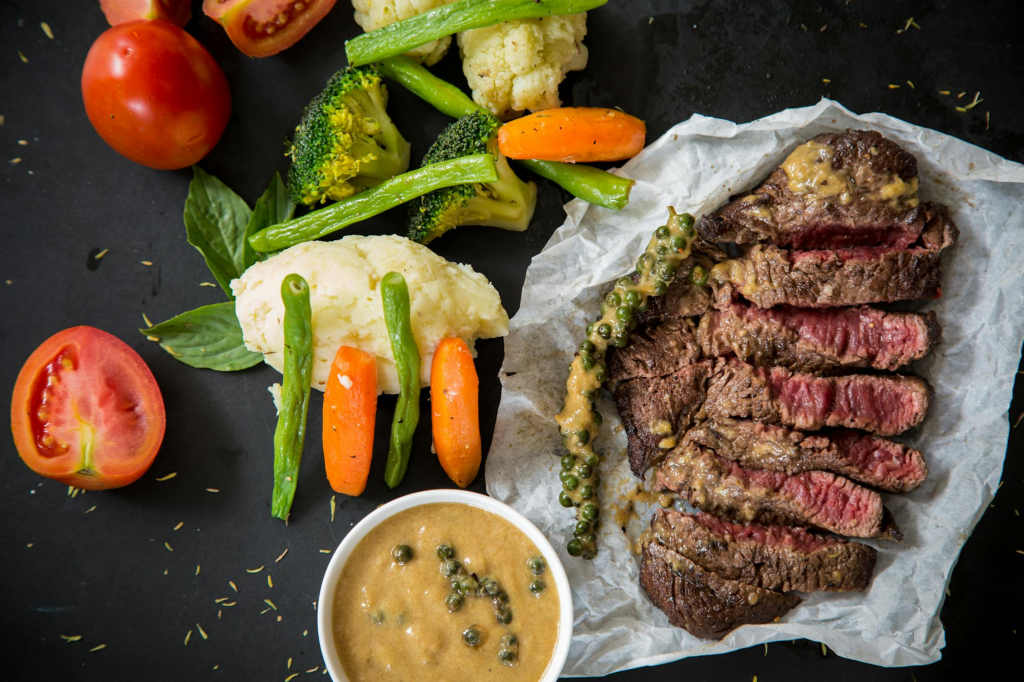Gut health isn’t just a trending topic—it’s a cornerstone of overall wellness. A growing body of research shows that the state of your gut microbiome affects everything from digestion and immunity to mental health and energy levels. So, it’s no surprise that many people are now asking: what foods contribute to a balanced gut?
This article explores the best foods to nourish your gut, explaining why they matter and how to incorporate them without upending your entire diet.

Why Gut Health Matters More Than Ever
The human gut is home to trillions of microorganisms, collectively known as the gut microbiota. These bacteria, fungi, and viruses play a crucial role in digesting food, producing vitamins, and regulating the immune system. An imbalanced gut—often the result of poor diet, stress, or antibiotic use—can contribute to inflammation, fatigue, and even mood disorders.
Emerging research from the National Institutes of Health confirms a strong link between the gut and brain function, often referred to as the gut-brain axis. This means what you eat doesn’t just affect your stomach—it can shape your mood and cognitive clarity too.
If you’re looking for more everyday strategies to improve your health, check out our article on small, meaningful upgrades to your daily routine.
Best Foods That Contribute to a Balanced Gut
1. Fermented Foods: Natural Probiotic Powerhouses
Fermented foods are among the most direct ways to introduce beneficial bacteria to your gut.
- Yogurt with live cultures is one of the most accessible options.
- Kefir is a tangy, drinkable fermented milk loaded with multiple strains of probiotics.
- Kimchi and sauerkraut are vegetable-based ferments packed with both fiber and good bacteria.
- Miso and tempeh, staples in Asian cuisine, offer plant-based probiotic support.
Notably, a study published in Cell found that people who added fermented foods to their diet experienced greater microbial diversity and reduced markers of inflammation (source).
2. High-Fiber Vegetables: Prebiotic Fuel for Your Microbiome
Fiber feeds the good bacteria in your gut, especially prebiotic fiber, which helps them grow and flourish.
- Leeks, garlic, and onions contain inulin, a powerful prebiotic.
- Asparagus, artichokes, and bananas are also rich in gut-friendly fiber.
- Broccoli and Brussels sprouts contain sulfur compounds that support liver and gut detox functions.
For a more comprehensive breakdown, explore our guide on nutritional habits that support long-term health.
3. Legumes and Beans: Gentle but Powerful Digestive Helpers
Although legumes are sometimes blamed for bloating, when prepared properly, they can help balance gut flora.
- Lentils, chickpeas, and black beans are rich in both soluble and insoluble fiber.
- Their slow-digesting carbs help regulate blood sugar and support bacterial fermentation.
Soaking or pressure-cooking beans before eating reduces their lectin content and makes them easier to digest.
4. Whole Grains: Better Than You Might Think
Contrary to some fad diets, whole grains are not the enemy—at least not for your gut.
- Oats, brown rice, quinoa, and barley all contain gut-friendly fibers.
- They also provide beta-glucans, which are known to support healthy immune function and digestion.
In fact, a study published in The American Journal of Clinical Nutrition linked whole grain consumption with increased levels of bifidobacteria, a beneficial gut microbe (source).
What to Reduce or Avoid for a Healthier Gut
Achieving gut balance isn’t just about what you add—it’s also about what you limit.
Ultra-Processed Foods
Highly processed foods often lack fiber and contain artificial additives that may disrupt gut bacteria.
- Watch for emulsifiers, artificial sweeteners (like sucralose and aspartame), and preservatives.
- These can alter the microbiome in ways that encourage inflammation or insulin resistance.
Excessive Alcohol and Added Sugars
Too much alcohol or sugar can feed harmful bacteria and yeast in your digestive system.
- Choose natural sweeteners like raw honey in moderation.
- Limit alcohol intake and opt for kombucha or sparkling water as alternatives.
Daily Habits to Support a Balanced Gut
Even small changes can make a difference over time. Here are a few low-effort tips that support gut balance:
- Start your day with oatmeal or kefir to feed your microbiota early.
- Include fermented vegetables with lunch or dinner, even in small servings.
- Rotate your fiber sources so your gut bacteria stay diverse and well-fed.
- Drink enough water, since fiber needs fluids to move efficiently through the digestive tract.
For those who want to make sustainable changes without going extreme, you might also like our post on how to add more fiber without changing your entire diet.
When to Consider Probiotic or Prebiotic Supplements
Although food should be the foundation of your gut health, supplements can help in certain situations—especially after antibiotics or during travel.
Look for:
- Probiotics with multiple strains, such as Lactobacillus and Bifidobacterium
- Prebiotics containing inulin or fructooligosaccharides (FOS)
However, it’s best to talk to a healthcare provider before starting any new supplement routine. The Harvard Health Blog outlines key factors to consider when choosing probiotics.
Final Thoughts
Supporting your gut doesn’t require a dramatic overhaul. By regularly including fermented foods, prebiotic vegetables, whole grains, and legumes in your meals, you can foster a more diverse and balanced microbiome. Small, consistent changes to your eating habits can produce long-term benefits for digestion, energy, immunity, and even mental health.
Remember, a balanced gut supports a balanced life.
References
- National Institutes of Health. “How gut microbes promote healthy gut-brain axis.”
https://www.nih.gov/news-events/news-releases/how-gut-microbes-promote-healthy-gut-brain-axis - Wastyk, H. et al. (2021). “Gut-microbiota-targeted diets modulate human immune status.” Cell.
https://www.cell.com/cell/fulltext/S0092-8674(21)00754-6 - Costabile, A. et al. (2012). “Whole-grain wheat consumption influences gut microbiota.” The American Journal of Clinical Nutrition.
https://academic.oup.com/ajcn/article/96/5/1178/4577083 - Harvard Health Publishing. “Probiotics: Are they beneficial?”
https://www.health.harvard.edu/blog/probiotics-are-they-beneficial-2019052916670






